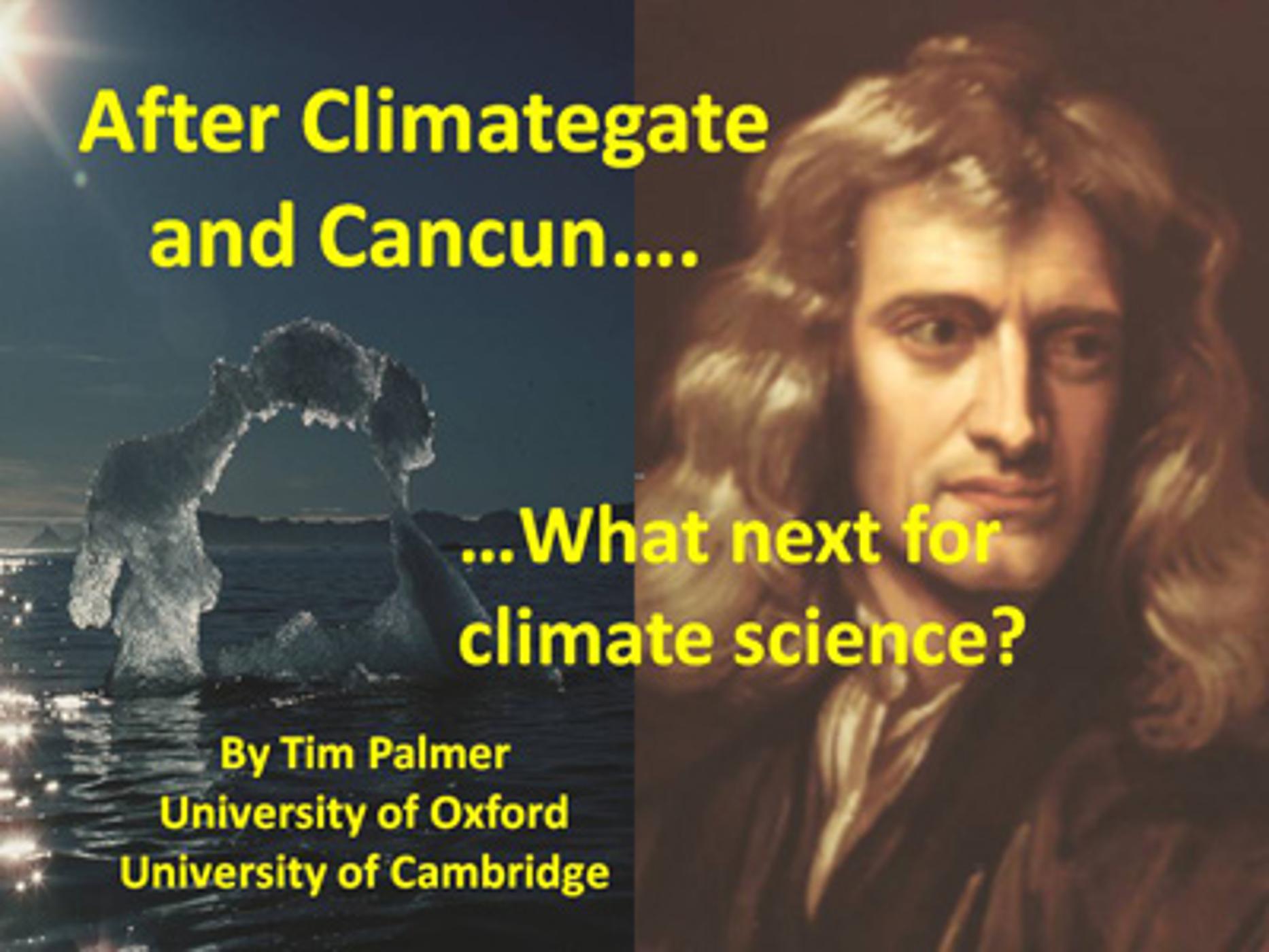Indentification and early warning of climate tipping points
Update: 2010-08-24 1
1
Description
Striking developments in the climate system in recent years have reinforced the view that anthropogenic radiative forcing is unlikely to cause a smooth transition into the future. Drought in the Amazon in 2005, record Arctic sea-ice decline in 2007, accelerating loss of water from the Greenland and West Antarctic ice sheets, and an extraordinary Asian summer monsoon in 2010, have all made the headlines. These large-scale components of the Earth system are among those that we have identified as potential ‘tipping elements’ – climate sub-systems that could exhibit a ‘tipping point’ where a small change in forcing causes a qualitative change in their future state. The resulting transition may be either abrupt or irreversible, or in the worst cases, both. In IPCC terms such changes are referred to as “large-scale discontinuities”. Should they occur, they would surely qualify as dangerous climate changes. Recent assessments suggest that the traditional view of the likelihood of tipping points as very low probability events should be revised upwards - especially if we continue business-as-usual. Given this, is there any prospect for providing societies with a useful early warning signal of an approaching climate tipping point? The talk will have two main aims. Firstly, we want to review (and slightly revise) the list of potential tipping elements, providing some updates, especially where there is new insight into the mechanisms behind them, or new information about the proximity of tipping points. Secondly, we want to present our ongoing work to try and develop robust methods of identifying and anticipating tipping points (in particular, bifurcations) in the climate system. Our latest application of these methods to sea surface temperature data suggest that a new climate state may be in the process of appearing, particularly in the Arctic and northernmost Atlantic region.
Comments
Top Podcasts
The Best New Comedy Podcast Right Now – June 2024The Best News Podcast Right Now – June 2024The Best New Business Podcast Right Now – June 2024The Best New Sports Podcast Right Now – June 2024The Best New True Crime Podcast Right Now – June 2024The Best New Joe Rogan Experience Podcast Right Now – June 20The Best New Dan Bongino Show Podcast Right Now – June 20The Best New Mark Levin Podcast – June 2024
In Channel








